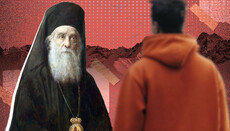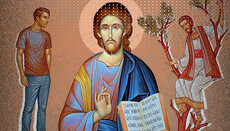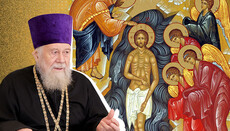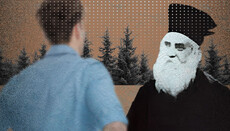Priest Igor Shumak: There are no contradictions between science and religion
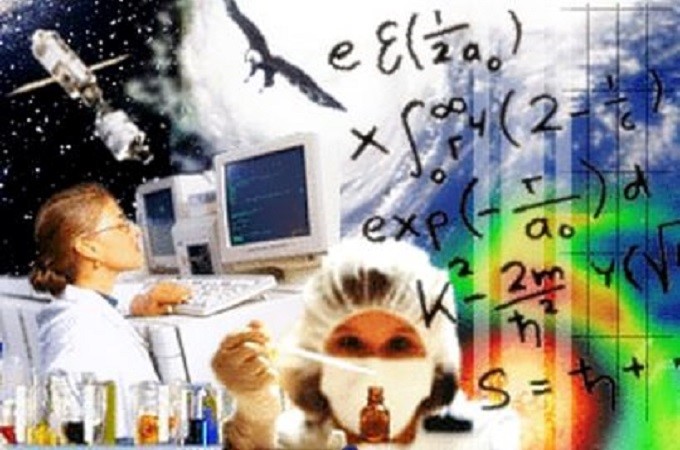
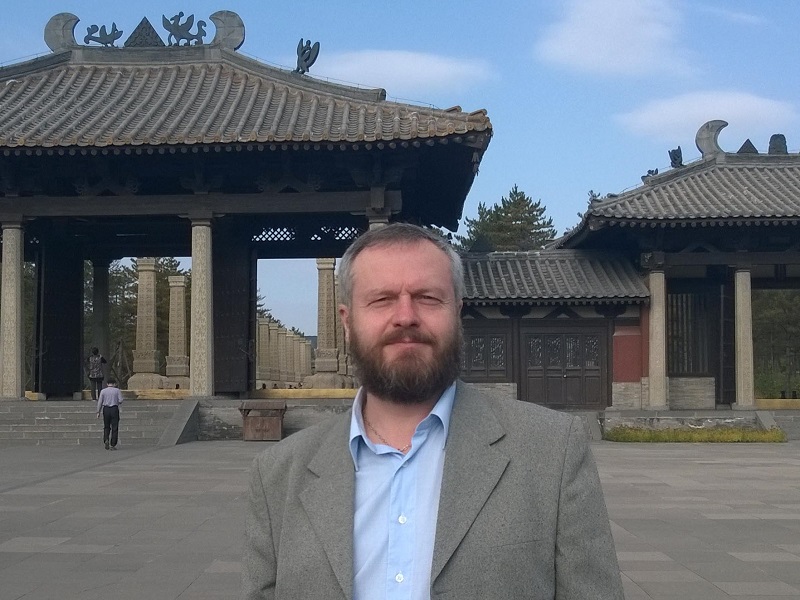
– I have heard recently a cynic remark: they say, in order to understand the importance of religion in the human life, it’s enough to compare the level of religiousness of any tribe like the Papuans, and then to juxtapose it with the number of believers among the Nobel Prize winners. In our contemporary world science and religion are often contrasted as “intelligence” versus “ignorance”. How would you comment on such approach?
– Science and religion have nothing to divide. We live in one world and conceive one and the same things, but from different angles: science – from the standpoint of natural environment, religion – from the spiritual, ideal point of view. If we refer to ancient times, we can see that science and religion went side by side. Christian theological schools originated from ancient philosophical schools (for instance, pagan Alexandrian one). Science did not argue with that. However, starting from XVII-XVIII centuries, in my opinion, the mankind began to uplift to the heights of “Babylon Tower” in terms of scientific knowledge. Apostle Paul said that people, like through the diffusing glass, started to learn something and take pride on it, feeling their significance. Religion is redundant here, that’s right. This is the very case when knowledge makes one feel arrogant. Man got to think he was able to achieve everything on his own. Namely such moments made humans reject the religion and use their budding knowledge in order to fight with God. In this case such natural scientists felt too proud to be able to watch their discoveries through the prism of Christianity. As for the fight with God, it never leads to creation, but to the fight with yourself, with those who surround you and, finally, drive you to the stalemate.
– How about the inquisition then?
– Let’s start with the fact there are lots of fables around it. Giordano Bruno, for instance, was not judged for his discovery that the Earth moves round the Sun, i.e. the earth is not a center of the Universe, but just a small planet among other ones. He was sentenced to death because he was preaching heresy and gathered a lot of people around. He had been warned many times that his views of God and Church were irrelevant. Nobody was particularly concerned about physics or astronomy. There were produced lots of ridiculous things with regard inquisition in order to fight with the Church. Yet if we take those times, scientific centers were set up either at the missionary outlets or at big cathedrals and were funded by monastic orders. Anyway, let me reiterate an idea the main problem was that those, who were engaged in science, detached themselves from religion and spiritual laws. Yet the Creator is free to change natural laws as He wishes to. Thus, we could and can witness miracles, which were absolutely negated by scientists initially. Nonetheless, God continues to work miracles. Or let's take the people who deny that God is a Creator. They cannot at the same time turn against clear and evident natural laws: they would never say there is no harmony in the development of the processes they study. They admit harmony, but reject the Lord Who created it and everything on the earth – they are just not able and willing to do it.
– What was primary in your life: science or religion?
– Both science and religion – they entered into my life together. But I made a conscious turn to God when I was studying in the post-graduate school in Japan. I would not say it happened due to superfluous knowledge that I had. God came to my life quietly and calmly.
– Does it have to do namely with Japan?
– There I enjoyed a possibility to engage myself in reading. How come I appeared in Japan? In those times, during 70-s, 80-s the East was said to be light; the East is a truth and a secret. So I decided to find out what the East actually was. By that time I had studied the Scriptures a little bit (in the university we had a subject of the history of religions and Christianity). And I was personally interested in Scriptures. But it felt like it was something parallel to me: here is me and there is Christianity. There was no Christ in my life then. I continued to believe that East was indeed a depth of knowledge and religious traditions. Further on, when I began to examine Confucianism, I involuntarily compared what I read with what was written in the Bible and by Holy Fathers. I understood how profoundly they expressed, grounded and revealed everything. Afterwards, the more I sank into oriental religions, the more I got convinced about it. Saint Nicholas of Japan, when preparing a background describing confessions common in Japan, wrote how much Buddhism and Shintoism are far from a human and how much those religions impoverish him. – What does this impoverishment consist in?
– In oriental religions man and God do not exist together. But our soul always searches for its origin. Where can we find it in Buddhism? In the wheel that rotates eternally with changing decorations? How about the Creator? There is a law, but where is its Creator? There is a phenomenon, but where is its Creator? People tend to go to their origins, and Christianity gives precise answers to all these questions.
– How does Orthodoxy change the Japanese?
– A case in point can be taken from the life of Saint Nocholas of Japan, Equal-to-the-Apostles. When he began his missionary activity in Japan, he settled in an ordinary house not far from the Shinto temple. A hereditary shinshoku Takuma Sawabe learnt that a foreigner was living next to him, who preached an alien religion, dangerous to Japanese people. The shinshoku then came to kill the Saint and did not even hide his intention (a successor of the ancient Samurai stock brought a sword with him). Saint Nicholas said the sacrificer could always do what he had arranged to, but before he could listen first to what Christianity teaches. Sawabe listened to him for one day, and then came again. Afterwards he adopted Christianity and was christened with the name Paul (like Saul, who used to persecute Christians and then transfigured completely). That shinshoku became the Saint’s aide, helped him, in particular, to translate the Scriptures into the Japanese language. In fact, Japanese people are very introvert: they do not let others into their life and hardly ever interfere with somebody else’s life. However, I witnessed personally how Japanese men changed when they are baptized and adopt Sacraments of the Church – they become more open and develop emotions of kindness, sincerity and consideration toward the people around them.
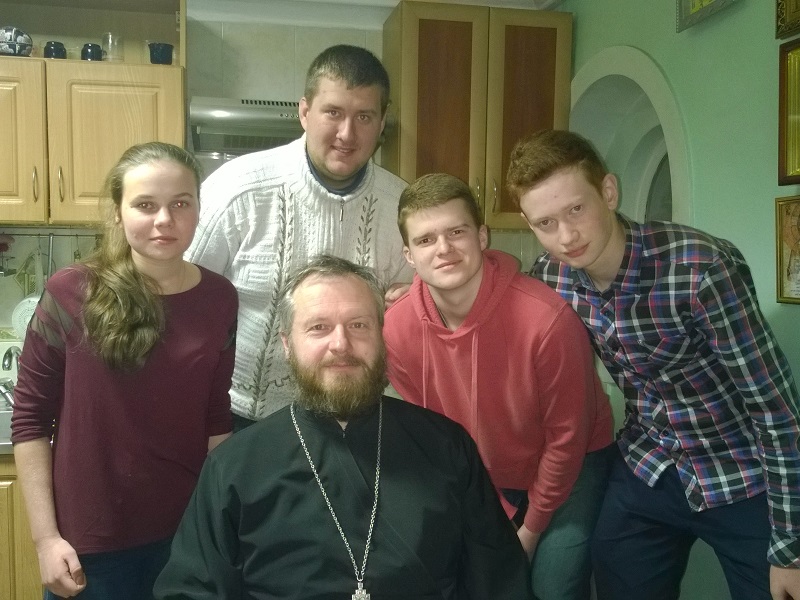
– Could you define in a few words what Orthodoxy means personally to you?
– I can do with one word – this is Life.
– Some people find an excuse for their being unfaithful by the presence of evil in the world. How can one believe, they say, if an innocent child is subject to tortures?
– Indeed, it’s a frequent excuse for disbelief and rancor. But there is no death in Christianity! Death exists only in our egocentric nature. For each parent, when he is a Christian, the highest goal in his life is to help his child get into paradise. Clothes, education are just means to achieve this goal – Salvation. If God knows how long each of us is supposed to live, He decides when it’s time for each of us to depart.
– What are further relations between science and religion in the world, in your opinion?
– An initially wrong vision that science and religion have to be set against each other should be eliminated. With many people an idea that a person can be busy with science and at the same time take Communion is nonsense. But scientists who believe in God are not so rare. Saint Luke of the Crimea was a prominent scholar and a surgeon. Being a bishop, he performed surgeries. His notes on purulent surgery remain a manual for medical students. A man of faith achieves heights in science. Nowadays scientific discoveries often prove what was once said by theologians. For instance, we can take recent evidence of the Creationism theory. Before there dominated a standpoint that the Universe was infinite and there was no need to create it. In the debates between creationists and evolutionists the latter lose out to the former. Geneticists paid attention to the fact that hybrids as a result of crossing do not preserve their new properties on a sustainable level. Nature tries to direct the hybrid’s properties to one of the parents. Moreover, a DNA molecule is so intricate that a contingency element is merely out of place here. I assume, the future science will prove the might of God. Religion does not reveal God – for God manifested Himself to us. Religion just helps us learn Him. But when science forgets about God, instead of creating cold synthesis, capable of resolving numerous problems of the mankind, it gets an atomic bomb. A means of destruction instead of a means of creation.
– What do you personally think about in-vitro fertilization (IVF), popular with many women, who desperately want to have a child but cannot do it in a natural way? This is a telling example of how science directly interferes into a human life…
– To answer this question, we need to give an unambiguous answer when life incubates. At the moment of fertilization? Or when the cell already begins to divide? This moment is elusive, and there is no point catching it. IVF foresees there are cells which are placed into a womb, the rest cells being destroyed. How can one accept murder? Personally, I wouldn’t be able to give life to my child by killing other children. In the very desire to have children at all costs people are often reluctant to accept God’s will. And achieving their desiderata at all costs, they sow seeds of their future tragedy with their own hands. Anyway, one should never fall into despair, because even to those who commit a grave sin, God still opens the door to salvation – the Confession Sacrament.
0
0
If you notice an error, select the required text and press Ctrl+Enter or Submit an error to report it to the editors.
Read also
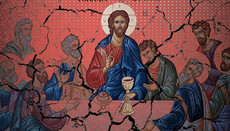
Damaged icon: a dogma on why we are not "biomass"
27 January 10:00

Theology of touch: Why God touched lepers and embraced enemies
21 January 10:00






